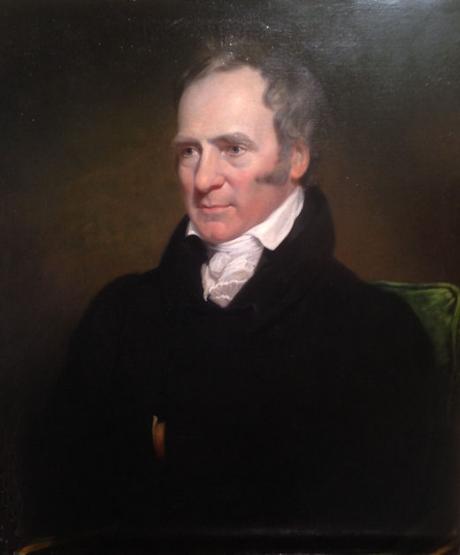|
James Losh
James Losh (1763–1833) was an English lawyer, reformer and Unitarian in Newcastle upon Tyne. In politics, he was a significant contact in the North East for the national Whig leadership. William Wordsworth the poet called Losh in a letter of 1821 "my candid and enlightened friend". Early life He was the second son of John Losh of Woodside, Wreay in Cumberland, born on 10 July 1763; John Losh (1756–1814), his elder brother, was father of Sara Losh, while William Losh was a younger brother. His mother was Catherine ''née'' Liddell, and Joseph Liddell the industrialist and banker was his uncle. With his brother John, Losh had instruction from the local curate, William Gaskin, and then went to the academy of John Dawson. He was trained up for university at school in Penrith, and matriculated in 1782 at Trinity College, Cambridge. John Tweddell was a close friend from college, as was John Bell the barrister. Another friend from this time was Charles Warren. Losh graduated B.A. ... [...More Info...] [...Related Items...] OR: [Wikipedia] [Google] [Baidu] |
James Losh
James Losh (1763–1833) was an English lawyer, reformer and Unitarian in Newcastle upon Tyne. In politics, he was a significant contact in the North East for the national Whig leadership. William Wordsworth the poet called Losh in a letter of 1821 "my candid and enlightened friend". Early life He was the second son of John Losh of Woodside, Wreay in Cumberland, born on 10 July 1763; John Losh (1756–1814), his elder brother, was father of Sara Losh, while William Losh was a younger brother. His mother was Catherine ''née'' Liddell, and Joseph Liddell the industrialist and banker was his uncle. With his brother John, Losh had instruction from the local curate, William Gaskin, and then went to the academy of John Dawson. He was trained up for university at school in Penrith, and matriculated in 1782 at Trinity College, Cambridge. John Tweddell was a close friend from college, as was John Bell the barrister. Another friend from this time was Charles Warren. Losh graduated B.A. ... [...More Info...] [...Related Items...] OR: [Wikipedia] [Google] [Baidu] |
Called To The Bar
The call to the bar is a legal term of art in most common law jurisdictions where persons must be qualified to be allowed to argue in court on behalf of another party and are then said to have been "called to the bar" or to have received "call to the bar". "The bar" is now used as a collective noun for barristers, but literally referred to the wooden barrier in old courtrooms, which separated the often crowded public area at the rear from the space near the judges reserved for those having business with the court. Barristers would sit or stand immediately behind it, facing the judge, and could use it as a table for their briefs. Like many other common law terms, the term originated in England in the Middle Ages, and the ''call to the bar'' refers to the summons issued to one found fit to speak at the "bar" of the royal courts. In time, English judges allowed only legally qualified men to address them on the law and later delegated the qualification and admission of barrister ... [...More Info...] [...Related Items...] OR: [Wikipedia] [Google] [Baidu] |
Chalk Farm
Chalk Farm is a small urban district of north London, lying immediately north of Camden Town, in the London Borough of Camden. History Manor of Rugmere Chalk Farm was originally known as the Manor of Rugmere, an estate that was mentioned in the Domesday Book of 1086. The manor was one of five which made up the large Ancient Parish of St Pancras. Rugmere is thought to mean ''the Woodcock's Pool''. Henry VIII bought part of the manor, detaching it to form the north-eastern part of what would become Regent's Park, the remainder subsequently become more commonly known as Chalk Farm. Both the detached area and the remainder remained part of the parish of St Pancras. In 1786 the estate was sold to Charles FitzRoy, 1st Baron Southampton, it was described as ''commonly known as Chalk Farm''. The term ''Rugmere (or Rug Moor)'' appeared to have endured for some time as a field name. Etymology The origin of the name is disputed: it certainly does not derive from the soil, as ... [...More Info...] [...Related Items...] OR: [Wikipedia] [Google] [Baidu] |
London Corresponding Society
The London Corresponding Society (LCS) was a federation of local reading and debating clubs that in the decade following the French Revolution agitated for the democratic reform of the British Parliament. In contrast to other reform associations of the period, it drew largely upon working men (artisans, tradesmen, and shopkeepers) and was itself organised on a formal democratic basis. Characterising it as an instrument of French revolutionary subversion, and citing links to the insurrectionist United Irishmen, the government of William Pitt the Younger sought to break the Society, twice charging leading members with complicity in plots to assassinate the King. Measures against the society intensified in the wake of the naval mutinies of 1797, the 1798 Irish Rebellion and growing protest against the continuation of the war with France. In 1799, new legislation suppressed the Society by name, along with the remnants of the United Irishmen and their franchise organisations, ... [...More Info...] [...Related Items...] OR: [Wikipedia] [Google] [Baidu] |

